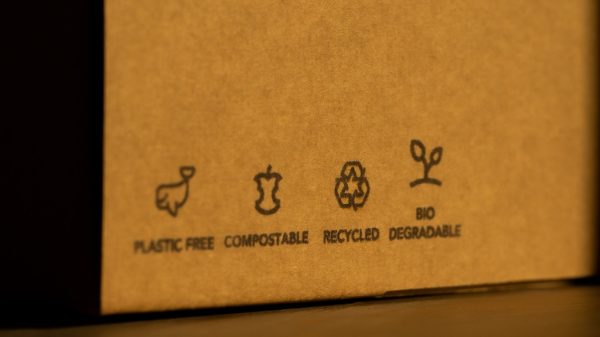 Several of my friends and colleagues sent me links of the two part story NPR did a couple of weeks ago on the LEED builder certification. I have to admit I skimmed the first one which was about the green revolution sweeping through the building industry and yadi yadi yada, I totally blew off reading the second one because I’m busy and some of this stuff gets redundant.
Several of my friends and colleagues sent me links of the two part story NPR did a couple of weeks ago on the LEED builder certification. I have to admit I skimmed the first one which was about the green revolution sweeping through the building industry and yadi yadi yada, I totally blew off reading the second one because I’m busy and some of this stuff gets redundant.
I got queried for my opinion but I’ll admit, I faked my way through it and claimed I thought it was great that the LEED program is thriving and getting good publicity. After about the third time I got this curious expression and one person saying something along the lines of “I thought it sort of said LEED was pretty flawed” that I decided I might need to have a better look at the second article. Well… wasn’t that a kick in the butt?
It’s not the First Time I have Heard LEED Criticized
Before I go in to a whole lot of detail let me clarify that LEED (Leadership in Energy and Environmental Design) as an energy certification program has been around the longest of any of the nationally recognized green certification programs and is considered by many to be the gold standard. In addition, LEED has its roots in the commercial sector and many states and federal government buildings have adopted mandates requiring any new government buildings be built to LEED Silver standards. To that end, The US Green Building Council (a non profit) who implemented and oversees the program has had tremendous success in bringing LEED building standards to the mainstream building culture and they are quickly catching on in the residential building sector as well.
The question begs to be asked then, is it all just a bunch of bunk? As I referenced before they have come under fire for not being comprehensive enough, too expensive, shouldn’t be meddling in the government, etc. For example in this report the issue of indoor air quality is raised. The assertion is that even though indoor air quality is included in the pointing system to achieve the certification, hypothetically, a builder could build a LEED platinum building (the mack daddy) and never do a thing to address indoor air quality. The article asserts this is a health hazard because the builders would have created a much tighter building envelope that did not allow indoor/outdoor air exchange trapping harmful stuff on the inside. However, the report doesn’t supply any compelling data or statistics that show a pattern of builders not addressing indoor air quality nor does it reference any reports of there being poor indoor air quality in LEED buildings. It’s completely hypothetical. Anectdotally, I will say that the builders I have worked with that are working towards LEED certification have addressed indoor air partly because they understand its relevance in the system and partly because it is some of the cheaper “easier” points to get.
As for NPR’s story, the issue raised is whether LEED buildings or homes actually perform the way they should. The LEED system awards its certification based on the building process and a series of third party inspections and tests to make sure the home is built to the program standards. However, it does not award nor remove the certification based on energy consumption. On the surface that sounds bass ackwards but the issue is that the USGBC does not dictate how a building is used and various buildings and or homes will have varying degrees of energy usage based on the occupants and what they are doing in said structure. Creating a uniform standard for that would be pretty darn difficult. The USGBC seems to be trying to track building performance and there may be some more rigorous standards for monitoring and measuring building performance in the future but finding a practical and fair way to do that will likely take more study.
My opionion of the NPR article, now that I have actually read it, is that I wish they had made it more clear that the LEED certification process is very extensive and goes far beyond just energy efficiency and indoor air quality. Items addressed are things such as easy access to public transporation, building materials manufactured within a 500 mile radius, recyling construction waste, sustainably harvested wood, extensive storm water management and on and on. Could a building be built to a more healthier standard or more efficient than required by LEED? I have no doubt it could. From the standpoint of a real estate practioner, we all have to find balance between how high to set the bar on a product and what the market can bear. I say shame on you NPR. I normally like your style of journalism but I found this one a little lacking of a full explanation which therefore could cost the sustainable building movement some momentum in loss of consumer confidence.
Anna Altic – Village Real Estate Services. I’ve called Nashville home for the last 15 years and have been practicing (practice being the key word here) real estate for just over 6 years. In the fall of 2007, I went to a local German Festival that had a home tour, including a LEED certified property, and I instantly became enamored with the idea of eco friendly living (ok, so I’d had a little beer and the dual flush toilet rocked my world). I have since devoted much of my time and energies in to studying and espousing the benefits of better building technology within our local residential market and my proudest accomplishment thus far has been successfully leading the initiative to get over 25 green features added to our MLS search fields.




































Joe Loomer
September 24, 2010 at 5:57 am
In an area where there is literally a miniscule public transportation system, I agree that the LEED certification should take in to account the overall access and proximity of the different qualification “check blocks” in the program.
NPR – like many in the media – are going to focus on the “hot topic” issues in order to create the buzz about the story. Some beat reporter on the clock for 1,000 words is hardly going to do the research necessary to truly present the overall program in it’s true form.
Navy Chief, Navy Pride
Daniel Bates
September 24, 2010 at 10:08 am
As a restoration carpenter, turned real estate agent in a historic town where I sit as the chairman of our architectural review board, I have to laugh at all of this “green” non-sense. It’s not that I don’t want to save the environment, I’m a huge proponent, but so many people think that tearing out perfectly good products to replace them with “green ones” is somehow good for the environment or that using bamboo that had to be shipped across the ocean on a cargo ship billowing diesel fumes is somehow better than using local hardwoods. Google the term “embodied energy” some time and see what I’m talking about. In my experience almost every “system”, “designation”, “qualification” related to real estate is corrupt, political, and ultra capitalistic to the point that they fail to achieve whatever good cause they were instituted for in the first place